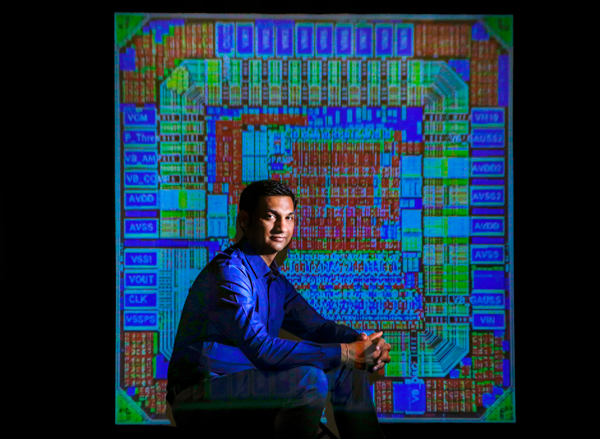Small but mighty
1

Many people are interested in drones for aerial photography. Amit Trivedi is invested for other reasons. Trivedi, an assistant professor of electrical and computer engineering, is developing insect-scale drones that will use machine learning to self-navigate. His work is supported by a National Science Foundation grant to produce robust and ultra-low-power spatial intelligence.
Trivedi’s drones are designed for purposes far beyond photography: flying through debris to find survivors in a rescue operation or locating infected plants in an agricultural field to stem the spread of disease, for example. With only a few sensors, a tiny battery, and a lightweight camera, they will be able to operate by making decisions in real time, considering factors such as changes in lighting conditions or movements of people.
To achieve this kind of design, Trivedi plans to develop new hardware where memory and processor are combined into one, somewhat like a biological brain. This hardware will use computer vision to predict a drone’s location from the position, orientation, and velocity of its movement relative to its starting position.
Trivedi’s goal is to expand the use of various sensing and control applications beyond their current uses by demonstrating their compatibility with small and nimble autonomous devices.